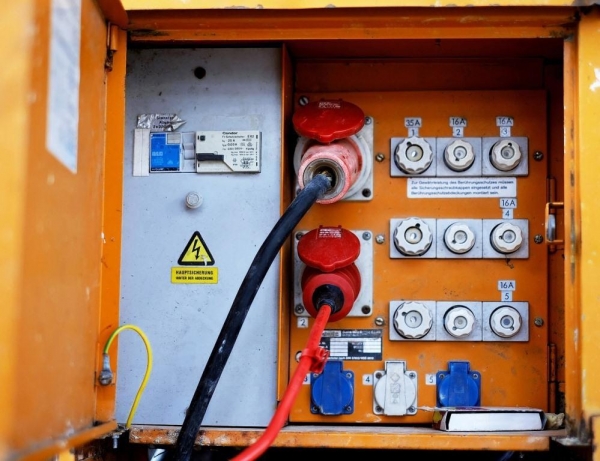
Comfortable life of modern man is unimaginable without the use of electrical appliances. But they all become useless when the power goes out. To avoid such situations in this article we will give recommendations that will allow you to choose the right generator for your residential.
 1. Choose based on the destination
1. Choose based on the destination
Generators vary in purpose which determines their technical characteristics and a set of options. Conventionally, there are three groups of devices from which you can choose the one that best fits your view:
- to work to standard set of household appliances and lighting equipment. This is the most extensive group, and it includes vehicles from a wide range of price and consumer qualities;
- to connect consumers sensitive to the quality of the current, for example, expensive computer equipment, systems “smart house”, etc. If relevant in your case, choose a power inverter type. Be sure to read the review of the 15 best generators for private homes — it will help to understand in all their diversity. The emphasis on these, we are for the reason that such equipment is important to resolve the lion’s share of tasks;
- for carrying out welding work. Such powerful hardware will fit you only if you are a professional welder or have started serious construction.

Except for accounting purpose at the first stage of selection will determine the way you run the equipment and the degree of its mobility. Running can be done by the manual starter (pulling cable) starter (launch by a key switch) or automatically activated. Regarding mobility, many models of small capacity are equipped with special wheels. The most powerful options require stationary placement.
2. Which is better: gasoline, diesel or gas?
For operation of the considered types of generators requires fuel. It can be gasoline, diesel or natural gas. The choice in favor of one of the variants do based on convenience and economic considerations:
- gasoline generators are the most demand as a result of affordable cost and versatility. Choose such equipment, if you are satisfied with the continuous working for 3-5 hours followed by a pause for cooling the engine;
- diesel installation is designed for continuous operation. These units will be suitable for you if you use plants as the only possible source of electricity. Be prepared for the fact that they are more expensive than gasoline devices.
- gas equipment has a high initial cost with a comparable low-cost fuel. Bet on gas when connected to the main source or the ability of comfortable use of power from the LPG cylinders.

When choosing a generator by fuel type it is necessary to remember one simple pattern: the cheaper the fuel, the more expensive the equipment, its maintenance and repair. This rule works in most cases!
3. Synchronous or asynchronous?
Generators may be synchronous or asynchronous — device and method of producing electricity. In the first type winding on the rotor is, in the latter. What follows from this?
- synchronous generators are not afraid of short-term overloads, but can not tolerate a dust and ingress of condensed moisture. With their help, you can get more current with minimal deviation. This has a positive effect on the durability of the connected devices. If you have sensitive equipment, then it’s your choice!
- asynchronous generators are usually protected by a casing that allows you to not be afraid of challenging operating conditions. At the same time, they do not tolerate overcharging, so you should always pay attention to the power consumers. Especially for devices with large inrush currents. But you can install it in any convenient place, and the issue with irregular voltage decide the extra stabilizer.
4. What power must be a generator?
Before we talk about the power of the generator, it is necessary to discuss the varieties of consumers. Some of them expend energy only for heating and lighting. For example, a kettle, lamp, heater. Power consumption is called active. For its calculation it is sufficient to fold nominal load from all consumers.

Another thing, if the equipment is installed an actuator which causes the presence of high inrush currents. The list of such devices can be made fridge, washing machine, vacuum, and almost the entire power tool (including a welder). In such cases it is necessary to consider the reactive power, i.e. the load value adjusted for the coefficients of the nominal power. For example, on the refrigerator indicated power of 0.6 kW. However, adjusted for the ratio of starting currents 3 (for each item of equipment), the reactive power amount is 1.8 kW.
The plant is often found the value of both active and total power, for example, 5 kW and 5.5 kW respectively. The first number is important to you in the case when the devices used with the active load, or they in combination with a reactive load. The second is relevant only if the network will be devices with high starting currents.
5. Single or three phase model?
To connect the industrial equipment you will need to use three phase generators (380), to living conditions quite suitable single-phase model (220V). However, the market there is a hybrid solution that allows you to feed equipment with an operating voltage of 220 V, 380 V and 12 V for charging batteries. Despite the obvious convenience of use, such universal models have their own features associated with the appearance of a phase shift, when connecting single-phase devices. You will be able to minimize the risk of skew, connecting to the generator single-phase load on a third of the full capacity of the plant. For example, to the generator 9 kW will be possible to connect the device with a total capacity of 3 kW (220V).
These simple five tips will allow you to avoid wandering among the wide range and choose the optimal model of the generator!